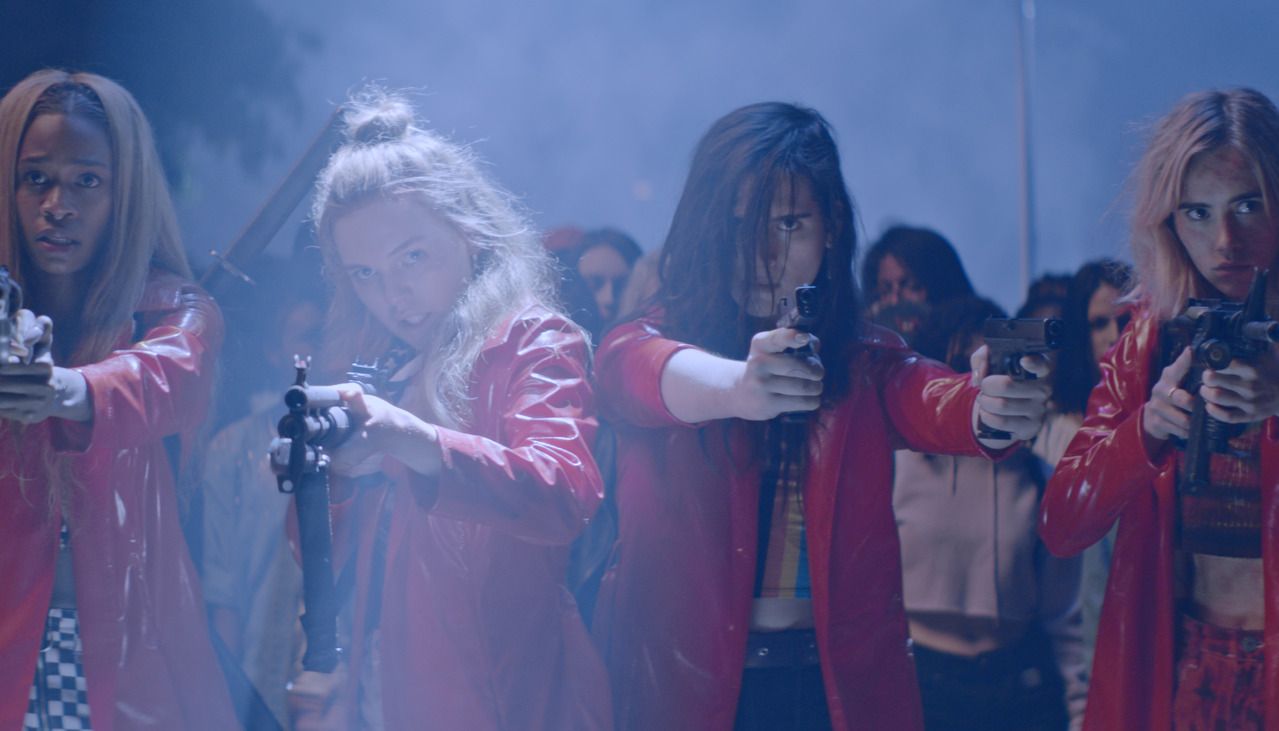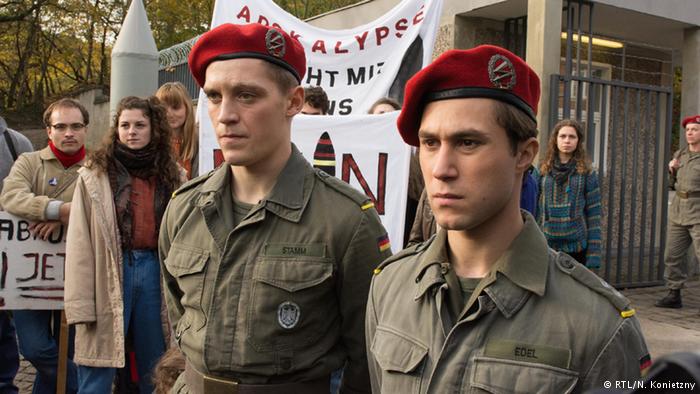Sam Levinson’s Assassination Nation plays a dangerous game of using the language it also satirises. Levinson’s film is a stylistically bold and flashy critique of the contemporary culture of violence somewhat reminiscent of the music video for Childish Gambino’s ‘This is America’. Yet, with Assassination Nation, Levinson has resorted to spoon-feeding his message to the viewer, a device that will always frustrate.
Lily (Odessa Young) lives with her three friends in a High School in Salem (a far too obvious nod to Miller’s The Crucible). She has a boyfriend, but also maintains a secret Lolita-esque relationship with a man cryptically saved as ‘Daddy’ on her telephone. The film thus intrudes the sphere of her privacy. We enter her personal double life, to learn soon that all of the characters have something to hide. The account of Salem’s mayor is being hacked, only to be followed hundreds of others.
The main premise of Assassination Nation is very simple – what would happen if all of our digital and secret lives were made public? The film poses important questions about the notions of freedom of expression through language and body. Are all forms of nudity pornographic? Or do we just want to read them as pornographic? Can a girl have a secret affair with a man twenty years senior to her? Levinson’s film shows how the internet culture has taught us to have a strong opinion on everything, and how we wrongly attempt to transpose this lesson into the analogue world.
It also exhibits how conservative resentments, fuelled by Trump’s ongoing presidency, pose a danger specifically to women and gender minorities. The final scenes of horror are indeed reminiscent of The Crucible’s witch hunt.
Yet all of those issues seem to be highlighted in an unnecessary opening montage with trigger warnings. The director warns us that on the screen will be depicted ‘toxic masculinity’, ‘male gaze’, ‘rape’, ‘transphobia’, etc. Perhaps it initially works as a joke subverting the viewers’ expectations, but it also takes the pressure off the viewer. I didn’t have to spot any of the above mentioned, I was told about them right away. It felt as if Levinson decided that he would do all the thinking for me.
[embedyt] https://www.youtube.com/watch?v=d9qyOGEuLY4[/embedyt]
The writing leaves much to be desired, as Levinson seems to be attempting to have his characters express their stands in the catchiest and humorous way. Some of the sentences uttered by characters could work as twitter posts, but that is not how real people talk. It formed a sense of anonymity surrounding each of the characters so none of them felt natural or genuine.
For a film about exclusion and a tragedy of everyone’s privacy being put on display, Assassination Nation really fails to construct a bond between the viewer and the characters. This element really undermined any sense of realism the film could have produced. Of course, I do not expect a naturalistic depiction of life in a story about town re-enacting the most apocalyptic scenes. Yet the director forgot that satire loses its edge when it stops looking like anything similar to our world.
I suppose the most frustrating element of Levinson’s direction is how he uses his story to lecture the viewers rather than leave them with any space for personal reading. Assassination Nation is as political as a film can be. And even though Levinson’s direction is very clearly influenced by the works of Gaspar Noé, Assassination Nation lacks the subtlety and ambiguity of the Franco-Argentine director.





